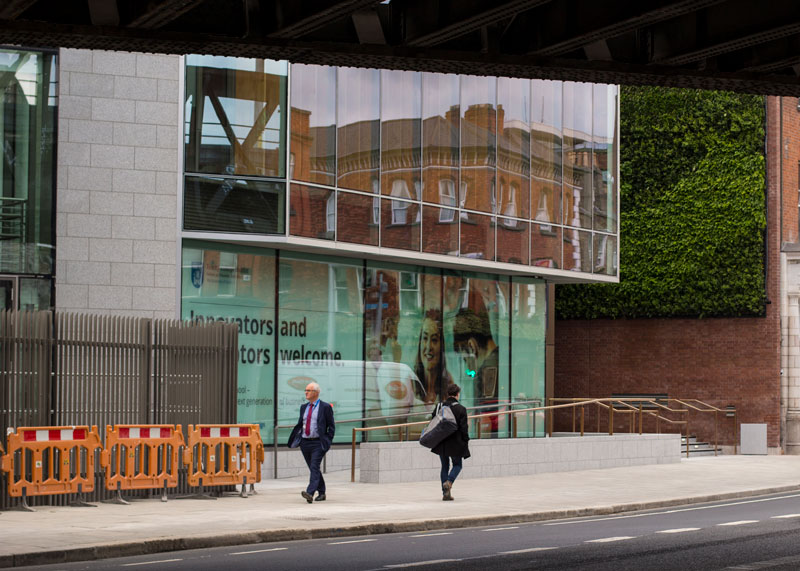Dean of the Trinity Business School Andrew Burke told members of the school on the day of the Provost elections that if Prof Linda Hogan was not elected, it would be a risk to gains that the Business School had made under the current administration.
In the email to members of the Business School, Burke said that one of the main reasons it had taken the Business School 98 years to become a triple-accredited school was because its financial resources “were used to fund ‘more important’ schools and activities in the University”.
Furthermore, he said, the school had not been “trusted to manage our School with the same degree of autonomy as our international peers”.
Burke went on to say that Hogan, as vice provost, had been “instrumental in going against the grain to give our Business School the autonomy and guarantee of a fair share of its own financial resources so that it could flourish”.
“So in 2016”, he added, “we secured a new financial model that achieved those aims”.
“We are still resourcing the School on this relatively new financial model. If Linda Hogan is elected Provost we can be sure that we can rely on these resources to hire more staff and fund promotions that are underpinned by this financial model.”
“Why risk any of this?”, he added.
The Trinity Business School has grown significantly over the past decade. Its home on Pearse St opened in May 2019, with then Taoiseach Leo Varadkar hailing the school as “representative of the comeback story of Irish universities”.
Last year, the Financial Times ranked the school’s global finance master’s courses as the 27th best in the world, and it was announced that the school had grown by 150 per cent over five years. This year, the School became triple-accredited, putting it in the top 0.6 per cent of business schools in the world.
In an email statement to The University Times today, Burke said: “I nominated and openly campaigned for Linda Hogan in a personal capacity throughout the Provost election. I never did so as Head of School.”
Burke said that he used his personal email address, rather than the dean’s address, and stepped down from chairing the Business School hustings.
Burke added that “the financial model was key to the School transforming and achieving triple accreditation”.
“When Linda Hogan was VP she was instrumental in putting this new financial model in place. As we had an inferior financial model in place for most of the 90+ year history of the School which prevented it from performing on the world stage, I think the reason for my concern is clear.”
“If we revert to the earlier norm then we risk losing everything that we have achieved over recent years. So far, we have had just one Provost who has backed this new financial model and hence there is always a risk that a new Provost may take a different view.”
“As Linda Hogan played a key role in designing the financial model, the risk of her making such a change was lower than in the case of the other candidates. However, I am hopeful that this will not be the case as the current model will help realise Linda Doyle’s vision for Trinity.”
He also said that the “School’s new financial model has ensured that the School’s growth and transformation is fully self-financed without ever drawing any financial resources away from College – or indeed the taxpayer! Furthermore, it has resulted in the School providing a greater transfer of funds to College and hence cross subsidisation of other schools than occurred beforehand.”
Prof Linda Doyle was elected the next Provost of Trinity last Saturday, running on a platform of decentralising power and moving away from a focus on rankings.
She is the first woman to be elected to the position in College’s 429-year history, and was elected on the second count.
Doyle did not respond to a request for comment by the time of publication.
In an email statement to The University Times, Hogan said: “Andrew Burke was one of my nominators in a personal capacity and was [cleared] to campaign for me only in that capacity.”
“I expect Andrew will explain the basis of his personal assessment of the importance of the Provost’s Election for Trinity”, she added, “I can simply say that as VP I played a major role in developing and implementing the financial model that has been instrumental to the success of the Business School and which has increased the income that the Business School generates for college, which returns to the schools through the internal budgeting model”.







